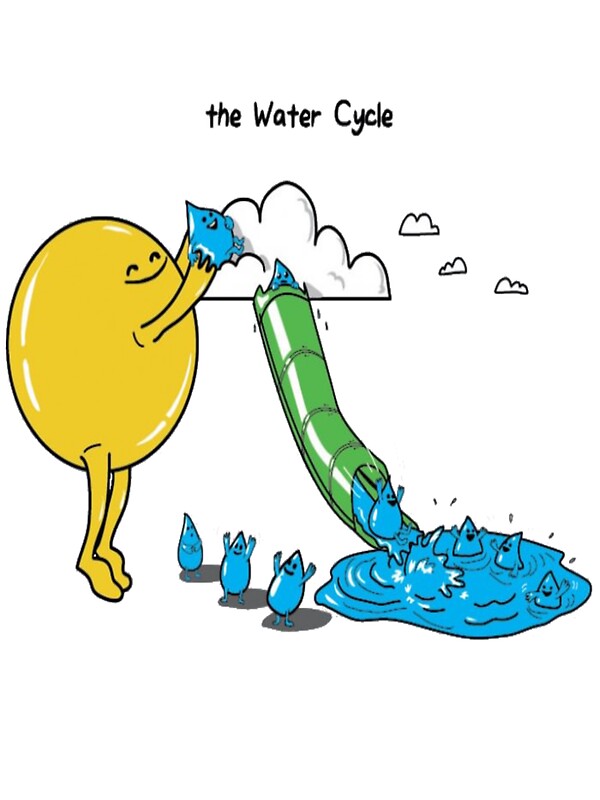The Water Cycle
The sun is what makes the water cycle work. The sun provides what almost everything on Earth needs to go—energy, or heat. Heat causes liquid and frozen water to evaporate into water vapor gas, which rises high in the sky to form clouds...clouds that move over the globe and drop rain and snow. This process is a large part of the water cycle.


Precipitation is water released from clouds in the form of rain, freezing rain, sleet, snow, or hail. It is the primary connection in the water cycle that provides for the delivery of atmospheric water to the Earth. Most precipitation falls as rain.

Accumulation, or collection is when water that falls from the clouds as rain, snow, hail or sleet, collects in the oceans, rivers, lakes, streams. Most will infiltrate (soak into) the ground and will collect as underground water.
Evaporation is the process by which water changes from a liquid to a gas or vapor. Evaporation is the primary pathway that water moves from the liquid state back into the water cycle as atmospheric water vapor.
Condensation is the process by which water vapor in the air is changed into liquid water. Condensation is crucial to the water cycle because it is responsible for the formation of clouds. Condensation is the opposite of evaporation.
Here are some games and websites that will help solidify our knowledge:


No comments:
Post a Comment